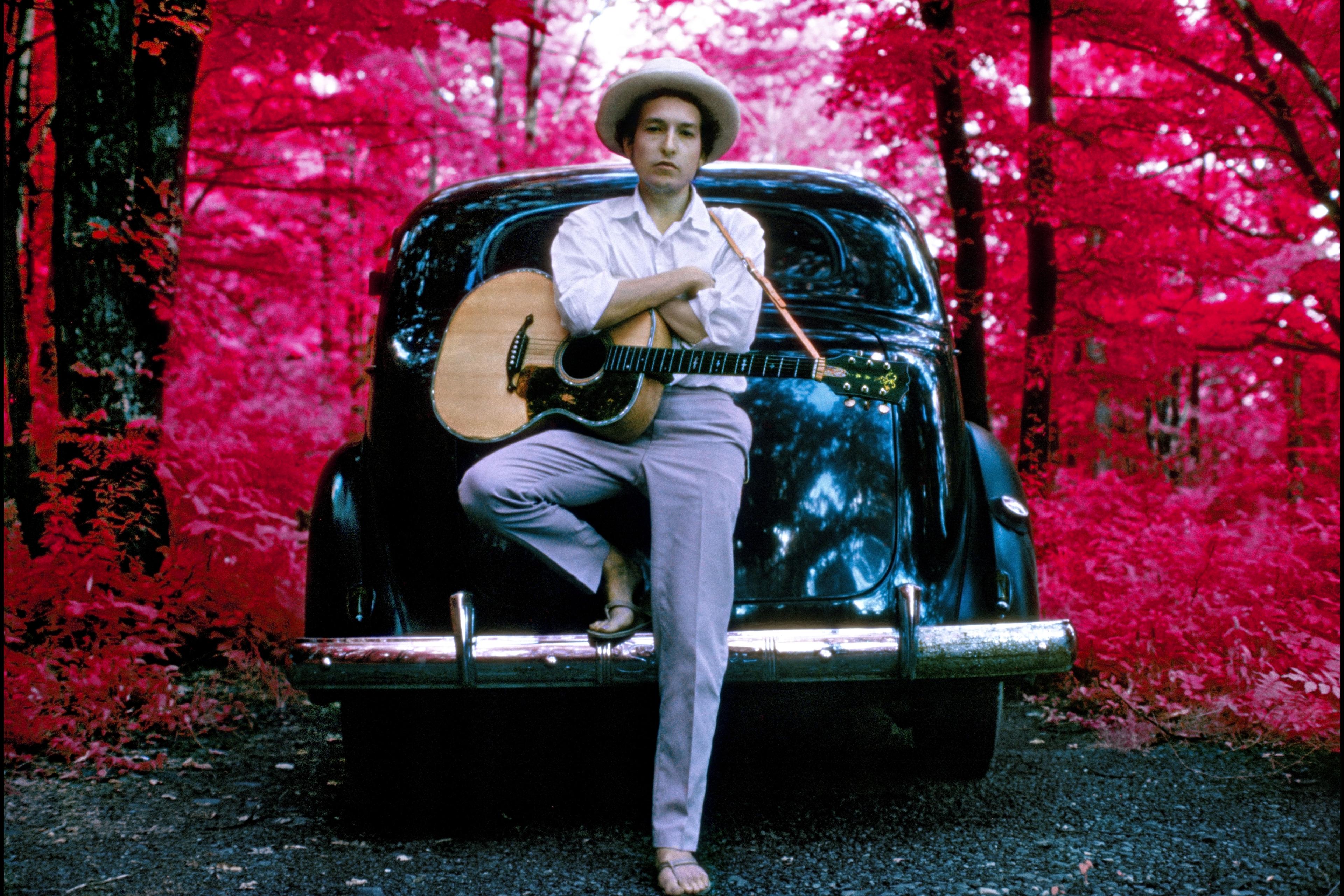Gonna run like a river
Right down to the sea
Gonna run like the sap
Through the heart of a tree
I run ’cause I must
Leave that dog in the dust.
The ‘black dog’ as a metaphor for depression is often attributed – as many things are – to Winston Churchill, who used the phrase to describe his life’s melancholic periods. However, the expression makes an earlier appearance in a letter from Samuel Johnson to a friend, written in 1783 as the British writer fell ill near the end of his life, when he had been preceded in death by most of his closest friends. ‘When I rise my breakfast is solitary, the black dog waits to share it, from breakfast to dinner he continues barking,’ he wrote. And, as a stand-in for death, the symbolic resonance of a colourless constant companion wasn’t lost on several early civilisations, including the ancient Egyptians, whose death deity Anubis was often depicted as having a human body and a black canine head.
For the song ‘Ten Degrees of Strange’ from their album Lost in the Cedar Wood (2021), the UK musician and actor Johnny Flynn and the UK writer Robert Macfarlane continued this millennia-spanning metaphor in the style of a folk tune – a tried and true form for expressions of struggle. Flynn, perhaps best known for his acting roles, including as George Knightley in the 2020 film adaptation of Jane Austen’s Emma (1815), and Macfarlane, a professor at the University of Cambridge and one of the United Kingdom’s most celebrated nature writers, collaborated on Lost in the Cedar Wood in 2020, finishing the final song just as the COVID-19 pandemic descended. And so, while ‘Ten Degrees of Strange’ is, in the duo’s words, ‘a song about trying to outrun anxiety, seeking joy and strength in landscape and movement’, it isn’t a direct reaction to the lockdown era. Still, it resonates quite meaningfully with the moment. Over rugged acoustic-guitar strums, Flynn’s baritone summons the natural world, and even death, as a narrator attempts to ‘leave that dog in the dust’. A layered electric-guitar refrain is catchy, but also hits with a speedy urgency.
While Lost in the Cedar Wood is steeped in modern anxieties – including those related to the climate crisis, of course – it also has ancient roots, which extend beyond its allusion to dogs of despair and death. The album was, in part, inspired by the Epic of Gilgamesh, in which the destruction of a sacred cedar forest by human hands plays a central role. For the music video, Flynn and Macfarlane reached out to the US animator Lynn Tomlinson, finding resonance between her clay-on-glass animation style and the clay tablets on which the Epic of Gilgamesh was first written. After all, from death and existential despair to our sometimes destructive relationship with nature, humanity is still carving many of the same concerns into its stories some four millennia later.
But, amid the tumult of these timeless themes, there are also glimmers of hope in the artistic collaboration between Flynn, Macfarlane and Tomlinson. Just as the lyrics occasionally find respite from darkness, so too do Tomlinson’s exquisite, shape-shifting animations linger on the calm of a flowing stream in a wintery landscape or the beauty of a flowering tree. And indeed, as an enchanting work of art created during a once-in-a-generation pandemic, there’s something hopeful to be found in the very existence of the ‘Ten Degrees of Strange’ music video – a testament to the human will to create, express and find beauty even when suffering seems inescapable.
Written by Adam D’Arpino







